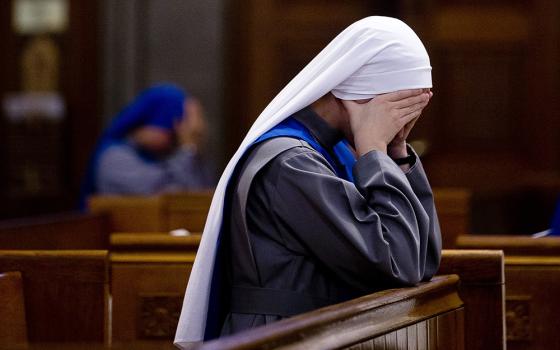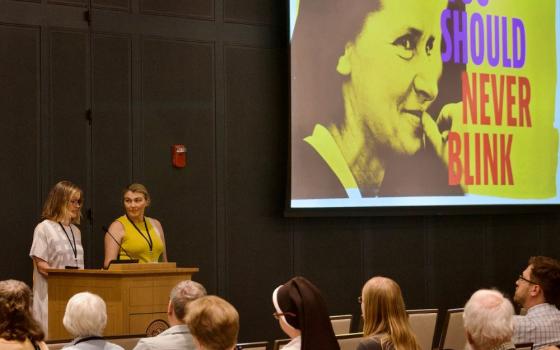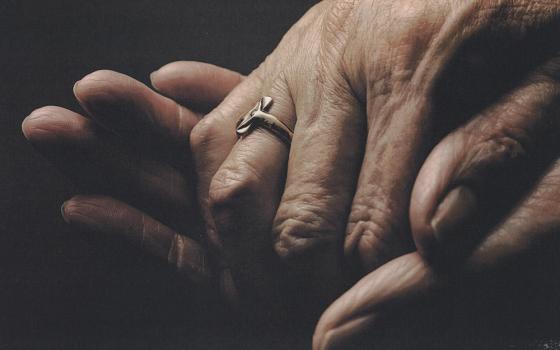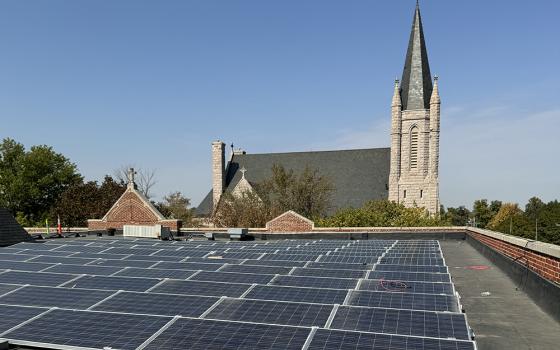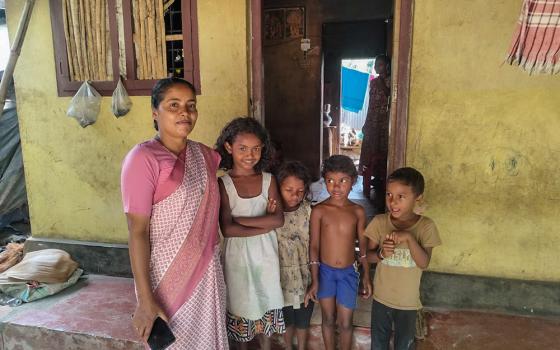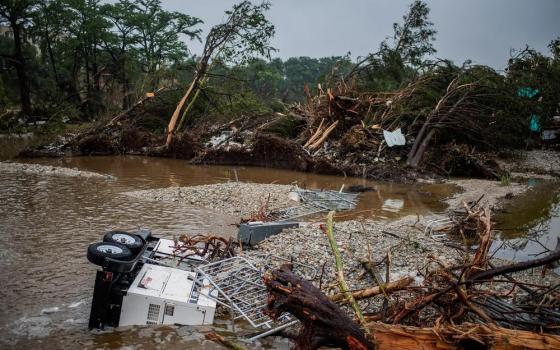A nun has been elected as secretary-general of the Eritrean bishops' conference, making her the first woman to hold that post in a politically volatile country that has also witnessed much antagonism to the local Catholic Church.
Sister Tsegereda Yonanne of the Comboni Missionary Sisters, who previously served as Chaplain for Catholic University Students in Eritrea for nearly five years as well as a counselor for her congregation in the region, was early this month elected secretary-general of the Eritrean bishops' conference.
"I ask God for his wisdom to bring the leadership and the staff of the Eritrean Catholic Secretariat (ErCS) together so that we can do our job together well", said Sister Tsegereda, FIDES reported.
The nun takes over from Father Tesfaghiorghis Kiflom, who served as secretary-general for almost nine years.
"I congratulate Sister Tsegereda and invite her to maintain peaceful relations with government offices and observe the communication protocol with the ErCS partners, as this will help in the process of raising awareness," said the priest, a member of the Casamari Congregation.
Sister Tsegereda said her priority would be to carry out pastoral, humanitarian and social activities on behalf of the Catholic Church for the entire Eritrean population regardless of ethnicity, religion or age.
In recent years, the government has forcibly taken over church-run health and social welfare institutions and confiscated or closed schools on the pretext that the Catholic Church was using such institutions to proselytize.
The Catholic bishops have maintained that the government violated the Church's rights and that they will "never cease to claim the return of the social institutions forcibly taken away ... as well as the right to carry out all the services of which she had been deprived."
They said Church people were serving ordinary Eritreans regardless of ethnicity, religion or culture and not only Catholics and also denied that it has ever engaged in any form of proselytism through its social services.
Advertisement
All social services have been and continue to be carried out in compliance with the laws of the land, they said, adding that the Church is not in competition with the State by running health and educational services.
The bishops explained that Catholics do not need only churches and chapels to celebrate faith and worship but also need health, humanitarian and education institutions to give concreteness to their faith, which based on love for neighbor.
Catholics make up about 4 percent of Eritrea's 3.21 million population and the Catholic Church is only one of four religious groups allowed to operate in Eritrea, along with the Eritrean Orthodox, Evangelical Lutheran and Sunni Islam groups.
"In Eritrea, the totalitarian government has gone after Christian institutions and lately those of the Roman Catholic Church to lessen the impact that the Church has on Eritrean society," according to the pontifical charity Aid to the Church in Need.
The Pew Foundation has estimated the population to be 63 percent Christian and 37 percent Muslim, with the Christian population being predominantly Eritrean Orthodox.
Sister Tsegereda also spoke on how to solve the protracted conflict between Eritrea and Ethiopia, saying: "The conflict between Eritrea and Ethiopia is unfortunately an endless problem. The Eritrean bishops have clearly condemned the war and asked leaders of the two countries to resolve the problem peacefully. We are committed to understanding how people can be reconciled".
Eritrea, on the Red Sea in northeast Africa, has been ruled by President Isaias Afwerki since it gained independence from Ethiopia in 1993.
In 2018, Ethiopia and Eritrea signed a pact to end a prolonged border conflict, restore diplomatic relations and open borders to people, goods and services.
In 2020, Eritrean troops intervened in Ethiopia's secessionist Tigray War on the side of Ethiopia's central government and in April 2021 Eritrea confirmed its troops are fighting in Ethiopia.
Editor's note: This article originally appeared on La Croix International.
